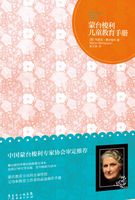The more one studied the problem the clearer it became that the vast majority of American-born needed a refreshing, and, in many cases, a new conception of American ideals as much as did the foreign-born, and that the latter could never be taught what America and its institutions stood for until they were more clearly defined in the mind of the men and women of American birth.
Bok went to Washington, consulted with Franklin K.Lane, secretary of the interior, of whose department the Government Bureau of Americanization was a part.A comprehensive series of articles was outlined; the most expert writer, Esther Everett Lape, who had several years of actual experience in Americanization work, was selected;Secretary Lane agreed personally to read and pass upon the material, and to assume the responsibility for its publication.
With the full and direct co-operation of the Federal Bureau of Americanization, the material was assembled and worked up with the result that, in the opinion of the director of the Federal Bureau, the series proved to be the most comprehensive exposition of practical Americanization adapted to city, town, and village, thus far published.
The work on this series was one of the last acts of Edward Bok's editorship; and it was peculiarly gratifying to him that his editorial work should end with the exposition of that Americanization of which he himself was a product.It seemed a fitting close to the career of a foreign-born Americanized editor.
The scope of the reconstruction articles now published, and the clarity of vision shown in the selection of the subjects, gave a fresh impetus to the circulation of the magazine; and now that the government's embargo on the use of paper had been removed, the full editions of the periodical could again be printed.The public responded instantly.
The result reached phenomenal figures.The last number under Bok's full editorial control was the issue of October, 1919.This number was oversold with a printed edition of two million copies--a record never before achieved by any magazine.This same issue presented another record unattained in any single number of any periodical in the world.
It carried between its covers the amazing total of over one million dollars in advertisements.
This was the psychological point at which to stop.And Edward Bok did.
Although his official relation as editor did not terminate until January, 1920, when the number which contained his valedictory editorial was issued, his actual editorship ceased on September 22, 1919.On that day he handed over the reins to his successor.
As Bok was, on that day, about to leave his desk for the last time, it was announced that a young soldier whom he "had met and befriended in France" was waiting to see him.When the soldier walked into the office he was to Bok only one of the many whom he had met on the other side.
But as the boy shook hands with him and said: "I guess you do not remember me, Mr.Bok," there was something in the eyes into which he looked that startled him.And then, in a flash, the circumstances under which he had last seen those eyes came to him.
"Good heavens, my boy, you are not one of those two boys in the little hut that I--""To whom you read the poem 'Passing Souls,' that evening.Yes, sir, I'm the boy who had hold of your left hand.My bunkie, Ben, went West that same evening, you remember.""Yes," replied the editor, "I remember; I remember only too well," and again Bok felt the hand in his relax, drop from his own, and heard the words: "Saviour-meet-me-on-my way."The boy's voice brought Bok back to the moment.
"It's wonderful you should remember me; my face was all bound up--Iguess you couldn't see anything but my eyes.""Just the eyes, that's right," said Bok."But they burned into me all right, my boy.""I don't think I get you, sir," said the boy.
"No, you wouldn't," Bok replied."You couldn't, boy, not until you're older.But, tell me, how in the world did you ever get out of it?""Well, sir," answered the boy, with that shyness which we all have come to know in the boys who actually did, "I guess it was a close call, all right.But just as you left us, a hospital corps happened to come along on its way to the back and Miss Nelson--the nurse, you remember?--she asked them to take me along.They took me to a wonderful hospital, gave me fine care, and then after a few weeks they sent me back to the States, and I've been in a hospital over here ever since.Now, except for this thickness of my voice that you notice, which Doc says will be all right soon, I'm fit again.The government has given me a job, and Icame here on leave just to see my parents up-State, and I thought I'd like you to know that I didn't go West after all."Fifteen minutes later, Edward Bok left his editorial office for the last time.
But as he went home his thoughts were not of his last day at the office, nor of his last acts as editor, but of his last caller-the soldier-boy whom he had left seemingly so surely on his way "West," and whose eyes had burned into his memory on that fearful night a year before!
Strange that this boy should have been his last visitor!
As John Drinkwater, in his play, makes Abraham Lincoln say to General Grant:
"It's a queer world!"















